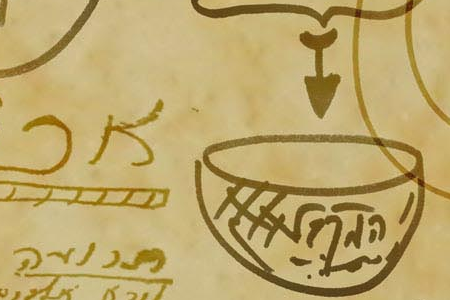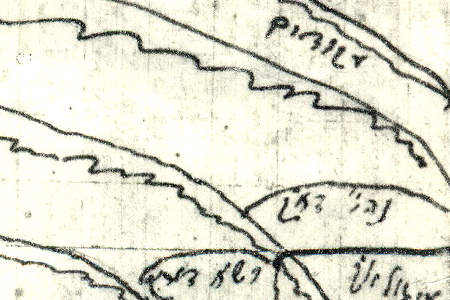
“In the beginning God created the heaven and the earth. And the earth was unformed and void, and darkness was upon the face of the deep; and the spirit of God hovered over the face of the waters.”
An Adventure for those Who Ask
If you are still satisfied with the pleasures of this world, then go ahead and enjoy music, art, and any other delight this world can offer. But if you want to attain the spiritual world, you should be concerned with something altogether different—you need the Creator.
If you need answers to questions that will not leave you alone, if you want to know why you were born, the purpose of this vast universe we live in, it means only one thing: that you will not rest until you get to the bottom of the mystery that is your soul.
“What surrounds me? Bodies upon bodies. They eat, make money, propagate… What lies ahead of me? Death? But if that’s the case, then what is the purpose of my existence?”
These are the questions that prompt one to embark on the path “back to the sources,” to Beresheet, “the beginning.” You ascend toward the forces that govern the world. Every spiritual degree along the path is a mystery: “What other great surprises does the Creator have in store for me?”
The Soul Covered Under Layers of the Ego
“In the beginning God created the heaven and the earth.” This passage speaks of the creation of the Upper World—a space wherein your soul will exist. Your “I” is not yet awake; you do not yet perceive your own existence.
“…the earth (desire) was unformed and void.” It follows that the desire was not yet formed (unformed and void), meaning we had no desire to reveal the spiritual world.
So what was there? Only a clean sheet of paper ready to record the history of humankind, the history of the one soul. That is what the passages allude to—the very beginning, when the spiritual world was conceived within you.
Your spiritual life is formed by tumultuous processes that you do not sense until you begin to feel an overwhelming desire to become a participant, or better yet, the protagonist in this wondrous play.
This is how your soul is formed.
But in the meantime, you must be patient, as a black, impenetrable screen separates you from everything that transpires on the inside; you cannot see or otherwise sense anything through it. It has been growing thicker over a long time rendering you increasingly egoistic and interested in external, rather than internal matters. Just think back to all the desires that sprang up inside you through your life, and how far from spirituality they were.
The Meaning of Genesis (Beresheet) and the Return to Absolute Pleasure
The word Beresheet encompasses the entire path of humankind and the full meaning of the Bible. Included is the understanding that you have exited from the Creator’s bosom and must return to Him following a long path of growing egoism that all of humankind must undergo. For that to happen, you must realize that you have truly become distant from the Creator and have immersed yourself in egoism, that you are unwell, and egoism is the cause of your illness.
This is how we gradually begin to cleanse ourselves of this dark coating called “egoism,” for it prevents us from living, breathing, seeing. More and more, we begin to uncover our souls—a complicated mechanism for attaining the spiritual world.
The pleasure we are meant to experience is absolute. It is precisely what the Creator has prepared for us. Herein lies the goal of creation—to fill us, His creations, with the feeling of eternity and perfection. Because the Creator Himself is eternal and perfect, He wants to impart His state to His creations.
 “What Is the Meaning of Genesis (Beresheet) in the Bible?” is based on the book, The Secrets of the Eternal Book: The Meaning of the Stories of the Pentateuch by Semion Vinokur.
“What Is the Meaning of Genesis (Beresheet) in the Bible?” is based on the book, The Secrets of the Eternal Book: The Meaning of the Stories of the Pentateuch by Semion Vinokur.
 Purchase Paperback »
Purchase Paperback »
 Purchase ePub & Kindle »
Purchase ePub & Kindle »
 Download PDF Free »
Download PDF Free »


 “What Is the Meaning of Genesis (Beresheet) in the Bible?” is based on the book, The Secrets of the Eternal Book: The Meaning of the Stories of the Pentateuch by Semion Vinokur.
“What Is the Meaning of Genesis (Beresheet) in the Bible?” is based on the book, The Secrets of the Eternal Book: The Meaning of the Stories of the Pentateuch by Semion Vinokur.
